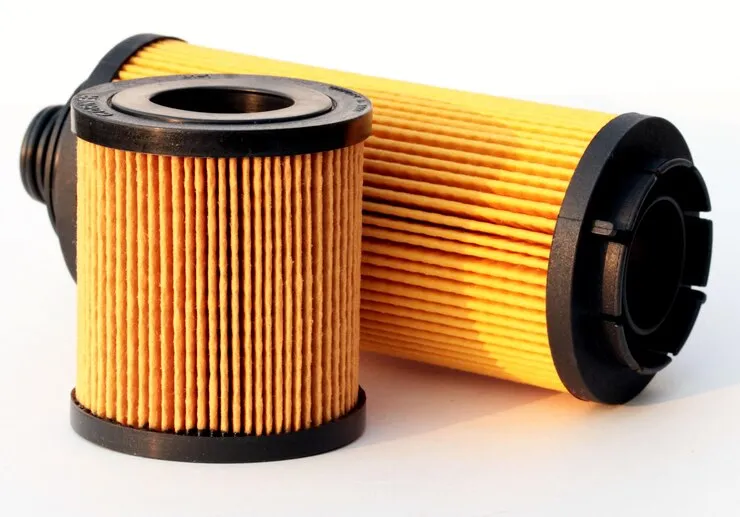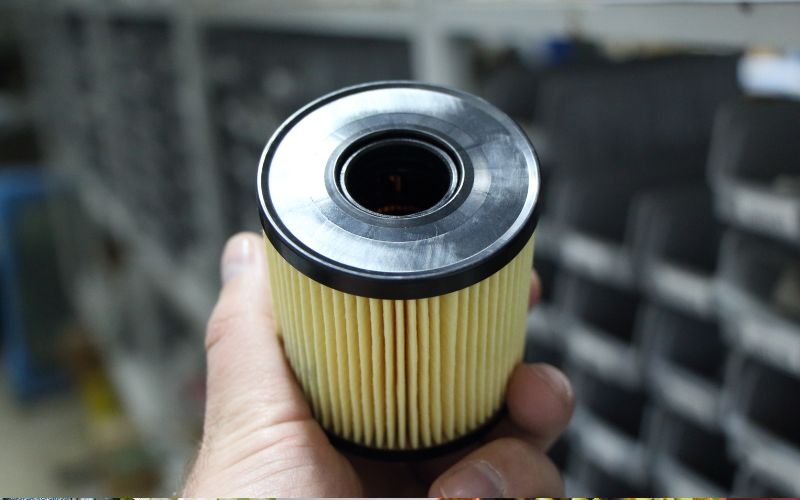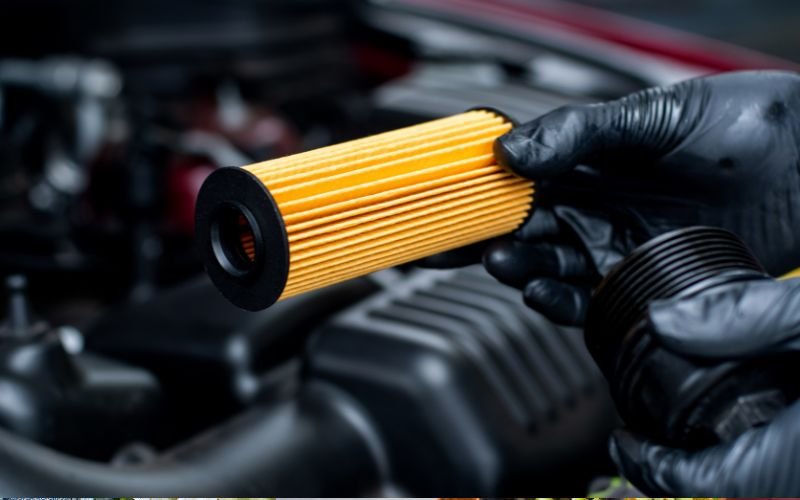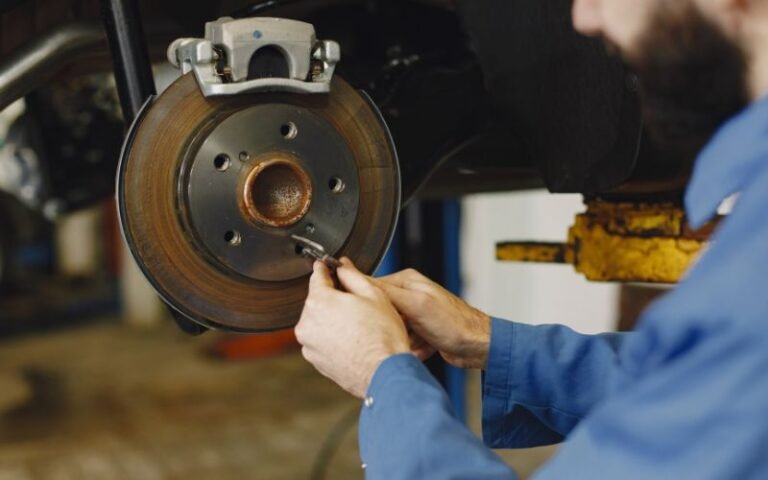Best Oil Filter
The heart of your car is its engine, and just like the human heart needs clean blood, your engine requires clean oil. That’s where the oil filter comes in. Choosing the best oil filter is not just about buying a name brand. It’s about understanding filtration quality, engine compatibility, and how the right filter can prolong engine life, reduce wear, and improve performance.
Whether you are a DIYer, a professional mechanic, or someone who just wants the best for their vehicle, this guide covers everything you need to know about oil filters in 2025.
What Is an Oil Filter?
An oil filter is a critical component of your car’s lubrication system. Its job is to remove contaminants, metal particles, sludge, and carbon deposits from the engine oil. Without a reliable filter, these impurities would circulate through your engine, leading to premature wear, reduced efficiency, and catastrophic engine failure.
How Do Oil Filters Work?
Oil is drawn from the oil pan, pumped through the oil filter, and then delivered to crucial engine components. Inside the filter:
- A filter media traps harmful debris.
- An anti-drain back valve prevents oil from draining when the engine is off.
- A bypass valve ensures oil flow continues if the filter is clogged.
- The canister or housing keeps it all sealed under pressure.
Types of Oil Filters
Understanding different oil filter types is key to choosing the right one for your vehicle and driving habits.
1. Spin-On Oil Filters
- Most common type
- Easy to install
- Used in many OEM applications
2. Cartridge Oil Filters
- More eco-friendly
- Require separate housing
- Allow inspection of filter media
3. Magnetic Oil Filters
- Use magnets to trap metal particles
- Often paired with other filter types
4. Centrifugal Oil Filters
- Use centrifugal force to separate contaminants
- Typically found in industrial or heavy-duty engines
Key Features of the Best Filter Oil
Micron Rating
The smaller the micron rating, the finer the filtration. A good filter typically captures particles as small as 10–20 microns.
Filter Media
- Cellulose: Cheaper, less efficient
- Synthetic: High filtration and longer life
- Blend: Balanced performance
Filter Capacity
Higher capacity means longer intervals between changes.
Bypass Valve
Opens when the filter is clogged to keep oil flowing. A must-have for cold starts or high-performance engines.
Anti-Drain Back Valve
Prevents dry starts by keeping oil in the filter when the engine is off.

Top 10 Great Oil Filters in 2025
| Rank | Filter Brand & Model | Micron Rating | Type | Best For | Price Range |
| 1 | Mobil 1 M1-110A | 10 | Spin-on | Synthetic oil | $12–$16 |
| 2 | Bosch Premium 3323 | 20 | Spin-on | Daily driving | $8–$12 |
| 3 | Fram Ultra XG7317 | 20 | Spin-on | High mileage engines | $10–$14 |
| 4 | K&N HP-1008 | 10–20 | Performance | Racing/performance engines | $13–$18 |
| 5 | Royal Purple 10-2835 | 15 | Spin-on | Extended oil change interval | $14–$20 |
| 6 | Wix XP 51348XP | 21 | Spin-on | Harsh driving conditions | $9–$13 |
| 7 | Purolator Boss PL14610 | 15 | Spin-on | Synthetic oil | $9–$13 |
| 8 | ACDelco PF63E | 30 | OEM-style | GM vehicles | $7–$10 |
| 9 | Motorcraft FL-500S | 20 | OEM-style | Ford/Lincoln | $6–$9 |
| 10 | Amsoil Ea15K13 | 15 | Spin-on | Long oil change interval | $15–$20 |
Pro Tip: Choose a filter that matches your oil type, vehicle, and driving habits for optimal performance.
OEM vs Aftermarket Oil Filters
- OEM (Original Equipment Manufacturer: filters are made for your specific vehicle and ensure fitment and warranty compliance.
- Aftermarket filters may offer higher performance, better filtration, or longer life at a lower cost.
Verdict: Use OEM for daily drivers and aftermarket high-performance filters if you are using synthetic oil or extended intervals.
Best Oil Filter for Specific Needs
For Synthetic Oil:
- Mobil 1 Extended Performance
- Royal Purple
- Purolator Boss
For High Mileage Engines:
- Fram Ultra Synthetic
- Bosch Premium
For Diesel Engines:
- K&N HP Series
- Baldwin Filters
- Fleetguard
For Performance Cars:
- K&N HP Series
- Amsoil Ea Filters
For Trucks & SUVs:
- Wix XP
- Motorcraft OEM filters
- Mobil 1
Buying Guide: How to Choose the Best Oil Filter
Match Vehicle Compatibility
Use your car’s year, make, and model to find a compatible filter.
Consider Driving Conditions
Frequent short trips or extreme temperatures require high-efficiency filters.
Oil Type Matters
Synthetic oil? Go with synthetic-compatible filters with extended life.
Budget vs Quality
While cheap filters save money upfront, premium filters offer longer protection and reduce long-term engine wear.
Top Oil Filter Brands
- Mobil 1: Best for synthetic oil
- Frame: Trusted brand with strong anti-drain back valve
- Bosch: German-engineered reliability
- K&N: Performance focus, ideal for racing
- Royal Purple: Extended oil change intervals
- Wix: High-quality construction
- Purolator: balance of performance and affordability
Common Oil Filter Myths
- All filters are the same: False. Material, flow rate, and construction quality vary.
- You only need to change the oil: Wrong. Always change the filter with the oil.
- Bigger is better: Not always. Fit and flow rate matter more.
How Often Should You Change Your Oil Filter?
- Conventional oil: Every 3,000–5,000 miles
- Synthetic oil: Every 7,500–15,000 miles
- High-performance engines: As frequently as the manufacturer recommends
Always follow your vehicle’s owner’s manual for precise intervals.
Signs of a Clogged or Failing Oil Filter
- Oil pressure warning light
- Dirty or dark engine oil
- Engine overheating
- Reduced fuel efficiency
- Ticking noises from the engine
DIY: How to Replace Your Oil Filter
Tools Needed:
- Oil filter wrench
- New oil filter
- Engine oil
- Oil catch pan
- Funnel
Steps:
- Drain old oil.
- Remove the old oil filter.
- Lubricate the gasket of the new filter.
- Screw on the new filter by hand.
- Refill with new oil.
- Start the engine and check for leaks.
Reusable vs Disposable Oil Filters
- Reusable filters can be cleaned and reused multiple times.
- Disposable filters are easy and cheap but must be replaced every time.
Reusable filters are environmentally friendly, but they require regular cleaning and have a higher initial cost.

Wrap Up:
Choosing the best oil filter means finding the perfect blend of fit, filtration, durability, and value for your vehicle. Whether you drive a high-mileage sedan, a performance coupe, or a diesel truck, the right filter can extend engine life, improve efficiency, and reduce maintenance costs.
If you’re unsure, stick with a high-quality synthetic-compatible filter like Mobil 1, Fram Ultra, or Bosch Premium, and change it as often as your oil change interval requires.
FAQs
What’s the best oil filter for synthetic oil?
Mobil 1 Extended Performance or Purolator Boss offer excellent filtration and long service intervals.
Can I use any oil filter with my engine?
No. Always use one compatible with your vehicle make/model and oil type.
Are expensive oil filters worth it?
Generally, yes. They offer better construction, higher filtration efficiency, and longer service life.
What is a micron rating in oil filters?
It’s the size of particles the filter can remove. Lower = finer filtration (e.g., 10 microns = better than 30).
Do I need to change the oil filter with every oil change?
Absolutely. Dirty filters can’t protect your engine effectively.
Citation:
Reddit user. (2022, February 15). What is the best oil filter on the market? Reddit. https://www.reddit.com/r/autorepair/comments/sudooj/what_is_the_best_oil_filter_on_the_market/







